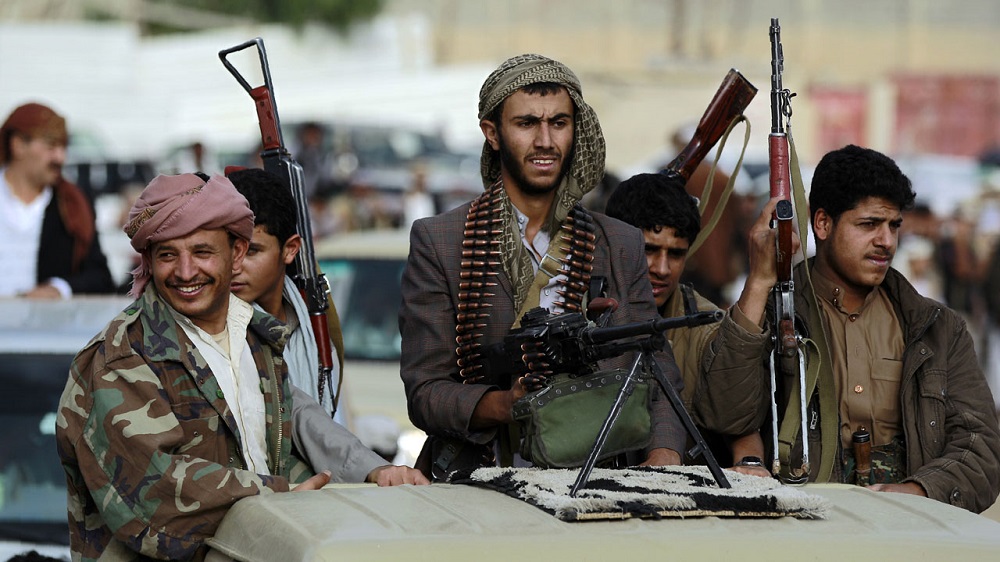Jeddah – Yemen has submitted a letter to the United Nations chief on the case of prisoners held in insurgent controlled jails.
Yemen’s Ambassador to the UN Khalid Yamani told Asharq Al-Awsat that the letter sent to Antonio Guterres urged the international organization to mobilize efforts and issue resolutions that force the insurgents to release the prisoners.
He added that Yemen, backed by Saudi Arabia and countries of the Gulf Cooperation Council, are exerting pressure on the UN to issue urgent resolutions, adding however that they have not yet received a direct reply to the letter.
“We are looking forward to achieving major results in this issue in the upcoming days,” the diplomat said.
Yamani noted however that the UN believes that the current situation in Yemen does not allow for any movement by the international organization or for issuing a resolution given the other side’s failure to implement resolution 2216.
Guterres understands the situation in Yemen and realizes that the insurgents will not sit at the negotiations table if they sense that their strategic interests are defeated, explained the ambassador.
On the other hand, he added, the UN does not want to declare to the international community that now is not the time to discuss negotiations.
Yamani accused the insurgents of prolonging the crisis for as long as possible in order to strike internal and external targets, including the Yemeni border with Saudi Arabia. These actions are backed by Iran’s allies and they justify them by saying that the “Yemeni people are being killed and that the Arab Coalition is murdering civilians.”
“They have forgotten that the main crime is the coup against legitimacy and the attempt to kill the president of the country,” he continued.
The problem lies with the UN Security Council because some of its members, including Russia, are seeking to prolong the war in order to exploit it.
Commenting on High Representative of the European Union for Foreign Affairs and Security Policy Federica Mogherini’s remarks that the Yemeni crisis has been “forgotten,” Yamani said: “I do not know how she felt that seeing as this issue is a concern of the Arab Coalition that is led by Saudi Arabia, which is sending billions of dollars in aid to the country.”
Furthermore, it is providing relief aid and the wages of public workers. The ambassador noted that the government now controls 80 percent of Yemen, while the remaining 20 percent remains under the control of insurgents. The government-controlled areas do not have a poor humanitarian situation, as opposed to the insurgent ones.
Yamani accused the militias in these areas of stealing the relief aid sent by the King Salman Center for Relief and Humanitarian Works. He therefore stressed the importance of documenting all relief and humanitarian work by the Arab Coalition forces and projecting this positive image to the world media.
